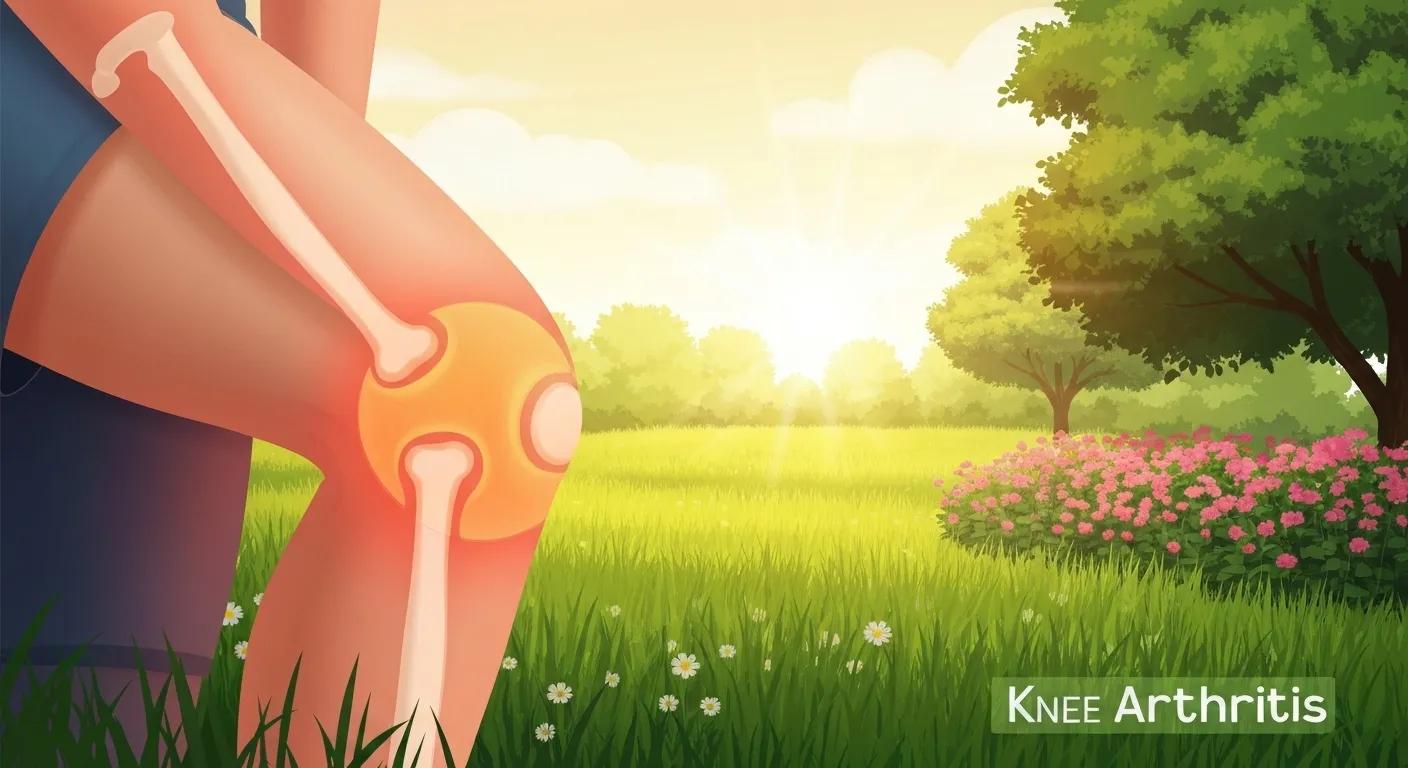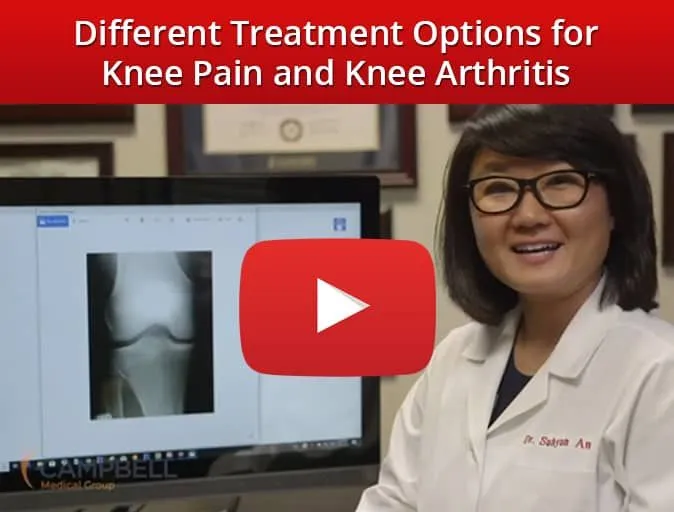
Nutritional Support for Knee Arthritis: Effective Diets, Foods, and Supplements to Reduce Pain and Inflammation
Knee arthritis, most commonly osteoarthritis, is a degenerative joint condition characterized by cartilage loss, joint pain, stiffness, and reduced mobility; targeted nutrition can reduce systemic inflammation and support joint function to help lessen symptoms and improve daily function. This article explains what knee arthritis is, how inflammation and biomechanics drive pain, and why diet and specific nutrients matter for symptom control and slower progression. You will learn which anti-inflammatory foods and herbs to prioritize, evidence-graded supplements with typical dosages and safety notes, foods to avoid, how the Mediterranean diet supports joint health, and practical weight-loss and lifestyle strategies that work with nutrition to reduce knee pain. Throughout, the guidance integrates current research insights (as of 06/2024), clear meal and supplement comparisons, and action-oriented steps for people with knee osteoarthritis, torn meniscus history, or related joint conditions. Read on for evidence tables, practical lists, and clinician-focused safety considerations to help translate nutrition into measurable knee pain improvement
What Is Knee Arthritis and How Does Nutrition Impact Its Symptoms?
Knee arthritis is a condition where cartilage breakdown and changes in the synovium and bone lead to pain, swelling, and reduced joint function; inflammation and altered biomechanics accelerate tissue damage and symptom burden. Nutrition impacts systemic inflammatory mediators, metabolic health, and body weight, each of which modifies the mechanical load and biochemical environment of the knee joint, so dietary choices can directly influence symptom severity and progression. Understanding these links helps patients apply dietary strategies that lower inflammatory signals and support cartilage resilience. The next subsections examine causes, inflammatory mechanisms, and why diet is a practical target for management.
What Causes Knee Arthritis and Its Effects on Joint Health?
Knee arthritis results from a mix of age-related wear, prior joint injury (such as a torn meniscus), obesity-related mechanical overload, and metabolic contributors that together degrade cartilage and alter bone structure. Cartilage breakdown reduces the smooth gliding surface of the joint, increasing friction and promoting synovial inflammation; subchondral bone can thicken and form osteophytes, further changing mechanics and pain patterns. Risk factors include advancing age, previous knee injury, repetitive joint stress, and systemic metabolic inflammation that accelerates structural change. Recognizing these causes introduces the role of inflammation and nutrition in modifying progression and symptoms.
How Does Inflammation Affect Knee Pain and Cartilage Degradation?
Inflammation in knee osteoarthritis involves pro-inflammatory cytokines (for example, interleukin-6) and acute-phase markers (such as C-reactive protein) that promote catabolic processes in cartilage and sensitize pain pathways. Systemic drivers—excess adiposity, poor diet, and oxidative stress—elevate these mediators and worsen local joint inflammation, while dietary anti-inflammatory patterns can lower biomarkers and reduce pain. Reducing systemic inflammation therefore lessens biochemical cartilage breakdown and can translate into improved function and reduced knee pain. This mechanistic link leads into why specific dietary choices matter for management.
Why Is Diet Important for Managing Knee Osteoarthritis?
Diet matters because it influences body weight, systemic inflammatory tone, and the availability of nutrients needed for bone and connective tissue maintenance, all of which affect pain and mobility in knee osteoarthritis. A diet emphasizing anti-inflammatory foods supports lower inflammatory biomarkers, while calorie-controlled, nutrient-dense patterns promote sustainable weight loss that reduces joint load. Practical dietary shifts—such as increasing omega-3 intake, polyphenol-rich produce, and dietary fiber—produce measurable benefits when combined with exercise and medical care. The following section explores anti-inflammatory foods and how to include them in everyday meals.
Which Anti-Inflammatory Foods Help Reduce Knee Arthritis Pain?
Anti-inflammatory foods supply nutrients that reduce oxidative stress, modulate immune signaling, and support cartilage health; regular intake of these foods is associated with improved symptoms in knee osteoarthritis and lower inflammatory markers. Eating a pattern rich in omega-3s, polyphenols, fiber, and healthy monounsaturated fats helps shift the body away from a pro-inflammatory state and supports weight management, which together lower mechanical stress on the knee. Below are food categories and a practical table linking foods to their active nutrients and serving suggestions to translate evidence into meals.
Here are top anti-inflammatory foods to prioritize for knee joint health:
- Fatty fish (salmon, mackerel, sardines): Provide EPA and DHA, which reduce inflammatory cytokines and joint tenderness.
- Berries (blueberries, strawberries): Rich in polyphenols that lower oxidative stress and inflammatory signaling.
- Leafy greens (spinach, kale): High in vitamins and antioxidants that support tissue repair and reduce inflammation.
- Nuts and seeds (walnuts, flaxseed): Supply ALA and polyphenols that contribute to anti-inflammatory status.
- Extra-virgin olive oil: Contains oleocanthal and MUFAs that inhibit inflammatory pathways and improve lipid profiles.
These choices form the basis of meal planning that pairs anti-inflammatory nutrients with caloric control to aid weight management and symptom reduction. The following table shows specific foods, nutrients, mechanisms, and serving ideas.
| Food | Key Nutrients | Anti-inflammatory Mechanism | Serving Suggestion |
|---|---|---|---|
| Salmon | EPA, DHA | Reduces inflammatory cytokines and joint pain | 3–4 oz, twice weekly |
| Blueberries | Anthocyanins, polyphenols | Lowers oxidative stress and CRP | 1/2 cup daily |
| Spinach | Vitamin K, lutein | Antioxidant support for connective tissue | 1 cup cooked, several times weekly |
| Walnuts | ALA, polyphenols | Plant omega-3s that modulate inflammation | 1 oz (about 7 halves) daily |
| Extra-virgin olive oil | Oleic acid, oleocanthal | Inhibits pro-inflammatory enzymes | 1–2 tbsp daily as swap for butter |
This table highlights actionable choices that supply key nutrients; combining these foods across meals helps create a consistently anti-inflammatory dietary pattern that supports knee osteoarthritis management.
What Are the Best Omega-3 Rich Foods for Joint Health?
Omega-3 fatty acids reduce systemic inflammation by altering cell membrane composition and decreasing production of pro-inflammatory eicosanoids, which can translate into less joint pain and improved function in some patients. Marine sources (EPA and DHA) have stronger anti-inflammatory effects than plant-based ALA, so prioritizing fatty fish two to three times weekly delivers therapeutic levels, while walnuts and flaxseed add complementary plant-based omega-3s. For people who do not consume fish, high-quality omega-3 supplementation can be considered after clinician review for dose and drug interaction checks. Transitioning from food sources leads naturally to antioxidant-rich produce and their role in joint health.
Research indicates that omega-3 fatty acids, particularly EPA and DHA found in fatty fish, play a crucial role in mitigating inflammation.
Omega-3 Fatty Acids: Anti-inflammatory Mechanisms and Benefits in Disease
Inappropriate, excessive or uncontrolled inflammation contributes to a range of human diseases. Inflammation involves a multitude of cell types, chemical mediators and interactions. The present article will describe nutritional and metabolic aspects of omega-6 (n-6) and omega-3 (n-3) fatty acids and explain the roles of bioactive members of those fatty acid families in inflammatory processes. Eicosapentaenoic acid (EPA) and docosahexaenoic acid (DHA) are n-3 fatty acids found in oily fish and fish oil supplements. These fatty acids are capable of partly inhibiting many aspects of inflammation including leucocyte chemotaxis, adhesion molecule expression and leucocyte–endothelial adhesive interactions, production of eicosanoids like prostaglandins and leukotrienes from the n-6 fatty acid arachidonic acid and production of pro-inflammatory cytokines. In addition, EPA gives rise to eicosanoids that often have lower biological potency than those produced from arachidonic acid, and EPA and DHA give rise to anti-inflammatory and inflammation resolving mediators called resolvins, protectins and maresins. Mechanisms underlying the anti-inflammatory actions of EPA and DHA include altered cell membrane phospholipid fatty acid composition, disruption of lipid rafts, inhibition of activation of the pro-inflammatory transcription factor nuclear factor κB so reducing expression of inflammatory genes and activation of the anti-inflammatory transcription factor peroxisome proliferator-activated receptor γ. Animal experiments demonstrate benefit from EPA and DHA in a range of models of inflammatory conditions. Human trials demonstrate benefit of oral n-3 fatty acids in rheumatoid arthritis and in stabilizing advanced atherosclerotic plaques. Intravenous n-3 fatty acids may have benefits in critically ill patien
Omega-3 fatty acids and inflammatory processes: from molecules to man, PC Calder, 2017
How Do Antioxidant-Rich Fruits and Vegetables Support Knee Health?
Fruits and vegetables rich in polyphenols and antioxidants reduce oxidative damage to cartilage and lower inflammatory signaling that contributes to pain and tissue breakdown in the knee joint. Berries, cherries, cruciferous vegetables, and colorful produce supply flavonoids and vitamins that support collagen integrity and counteract reactive oxygen species generated during chronic inflammation. Including a variety of colorful produce at each meal promotes a broad array of antioxidants and helps with satiety and weight control, both important for joint relief. This antioxidant support pairs well with herbs and spices that provide concentrated anti-inflammatory compounds.
Which Herbs and Spices Provide Natural Anti-Inflammatory Benefits?
Herbs and spices such as turmeric (curcumin), ginger, and garlic contain bioactive compounds that modulate inflammation through multiple biochemical pathways and can reduce knee pain when used regularly. Curcumin inhibits inflammatory enzymes and signaling molecules but has bioavailability limits unless formulated with absorption enhancers; ginger contains gingerols that reduce cytokine activity, and garlic offers organosulfur compounds with anti-inflammatory effects. Using these flavors in cooking offers practical daily exposure while supplement formulations may be considered for higher, evidence-based doses under clinician supervision. Understanding safe use and interactions is crucial before starting concentrated supplements, which leads into the evidence-based supplement review.
How Do Whole Grains and Dietary Fiber Improve Gut and Joint Health?
Dietary fiber and whole grains support gut microbiome diversity and production of short-chain fatty acids that lower systemic inflammation and improve metabolic markers relevant to joint health. Higher fiber intake promotes satiety and assists with sustainable weight loss, thereby reducing mechanical load on the knee; whole grains also provide micronutrients that support tissue repair. Practical servings include choosing whole-grain breads, oats, and brown rice and aiming for consistent fiber across meals to help both gut and joint outcomes. These dietary fibers complement healthy fats like extra-virgin olive oil in a joint-protective eating pattern.
What Healthy Fats Should Be Included to Support Knee Arthritis?
Healthy fats, including monounsaturated fats from olive oil and avocados and polyunsaturated fats from fatty fish and certain nuts, support anti-inflammatory signaling and improve cardiovascular risk profiles that often accompany osteoarthritis. Replacing saturated fats and trans fats with MUFAs and PUFAs reduces pro-inflammatory lipid mediators and supports endothelial and metabolic health, which indirectly benefits joint inflammation. Practical swaps—olive oil for butter, avocado for mayo—are easy to implement and support both inflammation control and sustainable weight management. These dietary strategies create a foundation for the supplement choices examined next.
What Supplements Are Effective for Knee Osteoarthritis? Evidence-Based Review
Supplements can complement dietary changes by providing concentrated compounds that target inflammation, cartilage metabolism, or bone health; however, evidence varies and safety considerations require clinician review before starting any new supplement. Current research indicates mixed but potentially meaningful benefits from glucosamine and chondroitin for some patients, consistent anti-inflammatory effects from curcumin preparations, and emerging promise from collagen peptides, MSM, boswellia, and resveratrol—each with differing evidence levels, dosages, and interaction profiles. Below is an evidence-graded comparison table to guide clinicians and patients, followed by short narratives on key agents and a reminder to consult about interactions and medication safety via the clinic website.
| Supplement | Evidence Level | Typical Dosage | Potential Benefits | Common Side Effects / Interactions |
|---|---|---|---|---|
| Glucosamine sulfate | Moderate (mixed RCTs) | 1,500 mg daily | May reduce pain in some patients | GI upset; possible interaction with warfarin |
| Chondroitin sulfate | Moderate (mixed) | 800–1,200 mg daily | Symptom relief in subset of patients | GI upset; quality varies by product |
| Turmeric / Curcumin | Moderate (positive trials) | 500–1,500 mg curcumin equiv. daily (formulated) | Anti-inflammatory, pain reduction | GI upset; enhanced absorption with piperine; interacts with anticoagulants |
| Collagen peptides (type II) | Emerging | 5–10 g daily | May support cartilage matrix and pain | Minimal; consider source/allergy |
| Vitamin D (+/− Calcium) | Strong for bone health | Vitamin D: 800–2,000 IU daily (based on level) | Improves bone health, may reduce fall risk | Hypercalcemia at high doses; check levels |
| MSM (methylsulfonylmethane) | Emerging (small trials) | 1,500–3,000 mg daily | Symptom relief; anti-inflammatory | GI symptoms; limited interaction data |
| Boswellia serrata | Emerging | 100–300 mg boswellic acids daily | Anti-inflammatory effects in small studies | GI symptoms; product variability |
| Resveratrol | Early-stage | 150–500 mg daily | Anti-inflammatory/antioxidant in animal and small human studies | Interaction with anticoagulants; bioavailability issues |
This evidence table clarifies that some supplements show benefit for certain patients while others are promising but require more rigorous trials. Before initiating supplementation, consult a clinician for individualized dosing, monitoring, and interaction checks; clinical consultation can be scheduled through the clinic website for personalized advice and medication/supplement interaction review.
What Is the Role of Glucosamine and Chondroitin in Cartilage Support?
Glucosamine and chondroitin are amino-sugar and glycosaminoglycan components thought to support cartilage matrix and synovial fluid properties, and clinical trials show mixed results with symptom improvement for some patients but not universal benefits. Some guideline panels note modest symptomatic benefit in select patients and emphasize product quality and sulfate form as factors; long-term disease-modifying effects remain uncertain. These supplements may help reduce pain for individuals who prefer non-prescription options, but clinicians should review interactions and expectations before initiation. The question of botanical anti-inflammatories then leads to turmeric and curcumin evidence.
How Does Turmeric Help Reduce Joint Inflammation?
Curcumin, the active extract of turmeric, inhibits multiple inflammatory pathways including NF-κB and cyclooxygenase enzymes, producing measurable reductions in pain and stiffness in several randomized trials when given in bioavailable formulations. Bioavailability limitation of curcumin is a practical concern; combining curcumin with absorption enhancers (such as piperine or lipid-based carriers) improves systemic levels and clinical effects seen in studies. Typical research dosages range from several hundred milligrams to over a gram per day of standardized curcumin preparations, and safety is generally good though caution with anticoagulant medications is warranted. Understanding curcumin formulation and dosing is essential when considering it as part of an integrative plan.
Can Collagen Supplements Improve Knee Cartilage Health?
Collagen peptides, often type II or hydrolyzed collagen, supply amino acids that may stimulate cartilage matrix synthesis and reduce pain in some trials through proposed mechanisms of chondrocyte activation and immune modulation. Emerging clinical data suggest symptom benefit in certain formulations at doses around 5–10 grams daily, but heterogeneity in product type and study design makes definitive recommendations premature. Collagen supplementation may be reasonable as a complementary strategy, especially when paired with exercise and protein adequacy, but clinicians should consider allergy and source concerns. After evaluating collagen, clinicians and patients should also consider vitamin D status for bone support.
Why Are Vitamin D and Calcium Important for Bone and Joint Health?
Vitamin D and calcium are fundamental for bone mineralization, fracture prevention, and overall skeletal support; vitamin D deficiency is common and can worsen musculoskeletal pain and impair mobility, so testing and replacement when indicated is a standard part of comprehensive care. For people with knee osteoarthritis, maintaining adequate vitamin D helps preserve bone health surrounding the joint and supports safe engagement in exercise and weight-loss programs. Supplementation should be individualized based on serum 25(OH)D testing, with careful dosing to avoid toxicity, and combined with dietary calcium as needed under clinician guidance. Ensuring adequate bone health sets the stage for safe physical therapy and lifestyle interventions.
What Emerging Supplements Show Promise for Knee Arthritis?
Emerging agents such as MSM, boswellia serrata, and resveratrol show anti-inflammatory and symptom-relief signals in early human and animal studies, but larger randomized controlled trials and standardization of preparations are needed before broad endorsement. MSM may reduce pain and improve function in small trials at gram-level doses; boswellia contains boswellic acids that inhibit 5-lipoxygenase pathways; resveratrol offers antioxidant and anti-inflammatory effects but faces bioavailability challenges. Because product variability and interaction potential exist, clinicians should evaluate evidence, purity, and possible medication interactions before recommending these agents. With supplements discussed, next we review foods to avoid that can worsen inflammatory status.
Which Foods Should Be Avoided to Prevent Knee Arthritis Flare-Ups?
Certain foods and food groups promote systemic inflammation, weight gain, and oxidative stress, which can exacerbate knee pain and accelerate tissue damage, so minimizing these items and choosing healthier swaps is a practical strategy. Highly processed foods, refined sugars, trans fats, and excessive alcohol are common culprits that increase glycemic load, pro-inflammatory lipid mediators, and visceral adiposity. The following table lists key food groups to avoid, how they drive inflammation, health impacts, and practical swap suggestions to implement immediately.
| Food Group | Inflammatory Mechanism | Health Impact | Swap Suggestion |
|---|---|---|---|
| Refined sugars & SSBs | Glycemic spikes, insulin resistance | Increased systemic inflammation and weight | Replace with whole fruit and sparkling water |
| Processed, ultra-processed foods | High in additives, trans fats | Promotes weight gain and inflammatory markers | Choose whole-food meals and home cooking |
| Saturated & trans fats | Elevates pro-inflammatory lipids | Increased cardiovascular and joint inflammation | Swap to olive oil, avocado, and fatty fish |
| Excess alcohol | Alters immune response; raises BP | Worsens inflammation; impairs recovery | Limit to moderate intake or abstain during flare-ups |
How Do Processed Foods and Refined Sugars Increase Inflammation?
Processed foods and added sugars produce rapid glycemic excursions and insulin responses that stimulate inflammatory cytokine production and increase visceral fat, both of which elevate systemic inflammation linked to worse knee pain. Frequent consumption contributes to weight gain and metabolic dysfunction that amplifies mechanical stress on the knee and biochemical cartilage degradation. Practical steps include reading labels, prioritizing whole-food meals, and replacing sweetened beverages with water or unsweetened alternatives. Reducing processed items naturally leads to improved nutrient density and lower inflammatory burden.
What Is the Effect of Saturated and Trans Fats on Joint Pain?
Saturated and trans fats promote a pro-inflammatory lipid profile and can increase circulating inflammatory mediators, raising both cardiovascular risk and joint inflammation that may exacerbate knee pain. Common sources—processed baked goods, fried foods, and some animal fats—are replaceable with healthier MUFA/PUFA sources like olive oil, nuts, and fatty fish to shift lipid mediators toward less inflammatory pathways. Making fat swaps helps preserve dietary satisfaction while reducing inflammation and improving metabolic health. This dietary nuance connects to individual sensitivities to dairy and gluten discussed next.
Should Dairy and Gluten Be Limited for Knee Arthritis?
Evidence linking dairy or gluten to knee osteoarthritis is mixed; most people do not need universal avoidance, but individuals with documented intolerance or inflammatory reactions may benefit from an elimination trial under clinician or dietitian supervision. For those who suspect dairy or gluten sensitivity, a monitored elimination and re-challenge can clarify symptom relationships while ensuring nutritional adequacy. Personalized testing and dietary guidance prevent unnecessary restrictions that could reduce calcium and protein intake vital for bone and muscle health. When sensitivities are suspected, coordinated clinical evaluation supports safe dietary modification.
How Do Excess Sodium and Alcohol Affect Knee Joint Health?
High sodium intake can promote fluid retention and exacerbate swelling, while excessive alcohol contributes to inflammation, weight gain, and interactions with medications commonly used for pain control, all of which can impair knee health. Moderation strategies—limiting processed foods high in salt and capping alcohol intake—support reduced swelling, safer blood pressure control, and fewer medication interactions. Practical substitution includes flavoring foods with herbs and citrus instead of salt and choosing lower-alcohol options or alcohol-free alternatives during flare periods. Managing these contributors aids broader inflammation reduction and symptom improvement.
How Does the Mediterranean Diet Benefit Knee Osteoarthritis Patients?
The Mediterranean diet is a dietary pattern emphasizing vegetables, fruits, whole grains, legumes, nuts, olive oil, and moderate fish intake; it reduces systemic inflammation, supports healthy weight, and improves metabolic markers, thereby benefiting knee osteoarthritis outcomes. Multiple cohort and intervention studies link Mediterranean-pattern diets to lower inflammation, improved function, and slower symptom progression when sustained over time. Adopting this pattern is practical, palatable, and aligns with the anti-inflammatory food recommendations previously described; the following subsections detail components, evidence, and weight-management synergy.
The Mediterranean diet is consistently highlighted for its positive impact on various health conditions, including osteoarthritis.
Mediterranean Diet for Osteoarthritis: An Update on Benefits and Mechanisms
The Mediterranean diet has gained significant attention for its potential health benefits on diverse pathological conditions including osteoarthritis (OA), a prevalent degenerative joint disease characterized by cartilage breakdown and inflammation. Numerous observational studies have suggested that adherence to the Mediterranean diet, may have protective effects against OA. The abundance of antioxidants and anti-inflammatory compounds and omega-3 fatty acids, among the Mediterranean diet components is believed to contribute to its beneficial effects on OA. Research investigating the association between the Mediterranean diet and OA has shown promising results. Several observational studies have reported that adherence to the Mediterranean diet is associated with a reduced risk of developing OA and with lower severity of OA symptoms. Additionally, intervention studies have demonstrated improvements in pain, function, and quality of life among OA patients following a Mediterranean diet intervention. Furthermore, emerging evidence suggests potential mechanisms underlying the protective effects of the Mediterranean diet against OA, including its ability to reduce inflammation, oxidative stress, and cartilage degradation. However, further well-designed randomized controlled trials and mechanistic studies are needed to elucidate the precise mechanisms and establish causality. In conclusion, the Mediterranean diet appears to be a promising dietary approach for the prevention and management of OA. Its rich array of nutrients and bioactive compounds may exert protective effects against OA development and progression, although more research is warranted to confirm these findings and elucidate underlying mechanisms.
Mediterranean diet and osteoarthritis: an update, LJ Dominguez, 2024
Further research supports the Mediterranean diet’s role in managing osteoarthritis by addressing its inflammatory and metabolic drivers.
Mediterranean Diet’s Role in Osteoarthritis Progression and Management
Osteoarthritis is the most common, incurable joint disease. The rapid pace of the disease has adverse consequences in the quality of patient’s life, while affecting healthcare systems. The research interest is focused on cost-effective and without side-effects methods to reduce the symptoms and improve the quality of life. Several dietary factors have been linked to the health of cartilage tissue, inflammatory processes and the progress of osteoarthritis. Mediterranean diet (MD) is a dietary pattern that was adopted by people living around the Mediterranean sea. This term first appeared in 1950, by Ancel Keys. It’s characterized by high consumption of vegetables, unprocessed grains, fruits, legumes, seeds, modest consumption of fish and poultry and olive oil is the principal fat source. Emerged data emphasize the beneficial effects of MD against chronic inflammation, metabolic complications and chronic diseases. There are few studies investigating the effect of MD against osteo
The role of Mediterranean diet and its components on the progress of osteoarthritis, 2017
What Are the Key Components of the Mediterranean Diet for Joint Health?
Key components include regular intake of fatty fish, abundant vegetables and fruits, whole grains, legumes, nuts, and olive oil as the primary fat source, with limited red meat and processed foods. Each component supplies anti-inflammatory nutrients—EPA/DHA, polyphenols, fiber, and MUFAs—that collectively reduce inflammatory mediators and support metabolic health. Practical guidance includes aiming for fish multiple times weekly, two or more servings of vegetables at meals, and using olive oil for cooking and dressings. These components create a dietary environment conducive to joint preservation and symptom control.
How Does This Diet Reduce the Risk and Symptoms of Knee Arthritis?
The Mediterranean diet reduces systemic inflammation and improves insulin sensitivity and lipid profiles, mechanisms that lower biochemical drivers of cartilage degradation and pain perception in knee osteoarthritis. Epidemiologic studies show associations between Mediterranean-pattern adherence and reduced incidence or slower progression of joint symptoms, and interventional trials report improvements in pain and function when dietary patterns change. Combining this diet with exercise produces additive benefits for pain relief and mobility. Implementing Mediterranean-style meals supports both symptom relief and long-term joint health.
Can Following the Mediterranean Diet Support Weight Management?
Yes—because the Mediterranean diet emphasizes nutrient-dense, high-fiber foods that promote satiety, lower caloric density, and facilitate sustainable weight loss when combined with portion control and physical activity. The pattern’s emphasis on whole foods, protein at meals, and healthy fats helps maintain muscle mass while enabling gradual weight reduction that measurably decreases knee joint load. Sample meal planning strategies—such as plant-forward plates, legume-based lunches, and controlled portions of grains and oils—support practical, long-term adherence. Weight loss achieved via Mediterranean principles augments the diet’s anti-inflammatory effects to improve knee outcomes.
How Can Weight Management and Lifestyle Changes Complement Nutritional Support?
Weight management and lifestyle interventions multiply the benefit of nutritional changes by reducing mechanical stress on the knee, lowering metabolic inflammation, and improving overall physical function; combined approaches yield larger symptom improvements than diet or exercise alone. Even modest weight loss produces significant decreases in knee load and pain, while structured exercise builds strength and joint stability that protect cartilage. The next sections explain why weight loss matters biomechanically, dietary strategies to support healthy weight, and how exercise and nutrition should be paired for optimal knee health, with information on clinical guidance availability for tailored programs.
Modest weight loss produces measurable reductions in joint load and pain:
- Reduced Mechanical Load: Losing 10 pounds can reduce knee joint load by approximately 30–60 pounds per step, lowering pain and improving function.
- Lowered Inflammatory Burden: Weight loss decreases adipose-driven cytokines such as IL-6 and TNF-α, reducing systemic inflammation.
- Improved Mobility: Less weight enables increased physical activity, creating a positive feedback loop for further weight loss and strength gains.
These biomechanical and inflammatory benefits explain why weight management is central to non-surgical knee OA care and lead into specific dietary strategies to achieve healthy weight loss.
Why Is Weight Loss Crucial for Reducing Knee Osteoarthritis Symptoms?
Weight loss reduces the mechanical load across the knee joint and decreases adipose-driven systemic inflammation, both of which lower pain, improve function, and slow progression of joint damage. Biomechanically, each pound of body weight multiplies into several pounds of force across the knee during activity, so even small weight reductions translate into meaningful load decreases. Clinically, studies show weight loss improves pain scores and physical performance in people with knee osteoarthritis. This biomechanical rationale supports targeted dietary and exercise interventions described next.
What Dietary Strategies Promote Healthy Weight for Joint Relief?
Effective dietary strategies include calorie-controlled, nutrient-dense meals emphasizing protein for muscle maintenance, high fiber for satiety, and lower refined-carbohydrate intake to reduce glycemic load and cravings. Practical tactics are portion control, prioritizing lean protein and legumes, planning balanced snacks, and adopting Mediterranean-style plate composition to ensure satisfaction while lowering calories. Tracking intake, setting modest weekly weight-loss goals, and pairing diet with resistance exercise help preserve lean mass and accelerate functional improvement. These strategies should be individualized and can be supported through clinical weight-loss programs available via clinician evaluation.
How Do Exercise and Nutrition Work Together to Improve Knee Health?
Exercise—particularly resistance training for quadriceps strength and low-impact aerobic activity—improves joint stability, reduces pain, and enhances function, while nutrition supplies the energy and protein needed for muscle repair and recovery. Combining progressive strength training with adequate protein intake (spread across meals) supports muscle mass preservation during weight loss and protects joint mechanics. Aerobic activity complements weight loss and cardiovascular health, and proper nutrition (timing and composition) optimizes recovery and reduces injury risk. Integrating exercise and nutrition into a coordinated plan maximizes long-term knee outcomes and is best done with clinician or physical therapy guidance when possible.
Clinical guidance for weight-loss plans and multi-disciplinary programs is available; schedule an evaluation through the clinic website for personalized care plans that coordinate nutrition, exercise, and non-surgical pain-relief options.
What Are Common Myths About Nutrition and Knee Arthritis?
Several persistent myths confuse patients and delay effective management; addressing misconceptions helps set realistic expectations and encourages evidence-based interventions that reduce pain and improve function. Common myths include the belief that diet alone can reverse advanced structural damage, that all supplements work equally, or that avoiding all fats is beneficial. Debunking these myths clarifies that diet and supplements can reduce symptoms and progression risk but should be personalized and integrated with exercise and clinical oversight. The subsections below provide myth-versus-fact clarity and emphasize the need for individualized plans.
Can Diet Reverse Knee Arthritis Completely?
Diet can significantly reduce symptoms, lower inflammation, and slow progression, but it rarely reverses established structural damage in advanced osteoarthritis; realistic goals focus on symptom control, improved function, and slowing deterioration. Nutritional changes combined with weight loss, exercise, and appropriate medical or physical therapy interventions often produce substantial quality-of-life gains even without structural reversal. Emphasizing symptom improvement and functional outcomes sets practical expectations for patients. This perspective leads to understanding supplement effectiveness and variability.
Are All Supplements Equally Effective for Joint Pain?
No—supplement effectiveness varies widely by compound, formulation, dose, and individual response; evidence ranges from moderate (glucosamine, curcumin) to emerging (collagen, MSM) and early-stage (resveratrol). Product quality, bioavailability, and interactions with medications influence outcomes, so clinicians should evaluate evidence and safety before recommending supplements. Patients benefit from personalized discussions that weigh potential benefits, risks, and cost. A consultative approach ensures supplements complement, not replace, core dietary and lifestyle strategies.
Does Avoiding All Fats Help Reduce Knee Inflammation?
Avoiding all fats is counterproductive; the focus should be on replacing saturated and trans fats with healthy monounsaturated and polyunsaturated fats that reduce inflammation and support cell function. Healthy fats from olive oil, avocados, nuts, and fatty fish lower pro-inflammatory lipid mediators and help maintain satiety during calorie-controlled diets. Balanced inclusion of healthy fats supports both anti-inflammatory goals and nutritional adequacy. This nuance underscores why personalized advice is important for optimizing dietary fat choices.
How Important Is Personalized Nutritional Advice for Knee Arthritis?
Personalized nutritional advice is essential because comorbidities, medication profiles, allergies, and individual goals shape safe and effective dietary and supplement plans; a one-size-fits-all approach can miss interactions or nutrient needs. Coordination with clinicians and dietitians ensures appropriate testing (for example, vitamin D), safe supplement choices, and realistic weight-loss targets that support joint health. When individualized guidance is needed, schedule a consultation through the clinic website to develop tailored nutrition, exercise, and non-surgical care plans. Personalized plans yield better adherence and measurable improvements in knee pain and function.
This article integrates dietary patterns, food choices, supplements, and lifestyle strategies that collectively reduce inflammation, support cartilage and bone health, and improve mobility. For individualized evaluation, medication/supplement interaction review, or tailored weight-loss and exercise programs, clinical consultations are available via the clinic website to help translate this guidance into a safe, effective plan.
Frequently Asked Questions
What lifestyle changes can further support knee arthritis management?
In addition to dietary adjustments, incorporating regular physical activity is crucial for managing knee arthritis. Low-impact exercises such as swimming, cycling, and walking can enhance joint mobility and strengthen the muscles around the knee, reducing pain and improving function. Additionally, maintaining a healthy weight through a balanced diet and exercise can significantly decrease the mechanical load on the knee joint. Stress management techniques, such as yoga or meditation, can also help reduce inflammation and improve overall well-being, complementing dietary efforts.
How can hydration impact knee arthritis symptoms?
Staying well-hydrated is essential for joint health, as water helps maintain the viscosity of synovial fluid, which lubricates joints. Proper hydration can reduce stiffness and improve mobility in individuals with knee arthritis. Dehydration may exacerbate inflammation and joint pain, making it crucial to drink adequate fluids throughout the day. Aim for at least 8 cups of water daily, adjusting for activity level and climate. Herbal teas and water-rich fruits and vegetables can also contribute to overall hydration.
Are there specific foods that can worsen knee arthritis symptoms?
Certain foods can exacerbate knee arthritis symptoms by promoting inflammation. Common culprits include processed foods high in refined sugars, trans fats, and excessive sodium. These items can lead to increased inflammation and weight gain, both of which can worsen knee pain. Additionally, some individuals may experience sensitivity to nightshade vegetables (like tomatoes and eggplants) or gluten, which could trigger inflammatory responses. Monitoring your diet and identifying personal triggers can help manage symptoms effectively.
How does stress affect knee arthritis?
Stress can significantly impact knee arthritis by increasing inflammation and pain perception. When stressed, the body releases cortisol and other hormones that can exacerbate inflammatory processes. Chronic stress may also lead to unhealthy coping mechanisms, such as poor dietary choices or inactivity, further worsening symptoms. Implementing stress-reduction techniques, such as mindfulness, yoga, or deep-breathing exercises, can help mitigate these effects and improve overall joint health and pain management.
What role does sleep play in managing knee arthritis?
Quality sleep is vital for managing knee arthritis, as it allows the body to repair and regenerate tissues, including cartilage. Poor sleep can increase pain sensitivity and inflammation, making it harder to cope with arthritis symptoms. Aim for 7-9 hours of restorative sleep each night by establishing a consistent sleep schedule, creating a comfortable sleep environment, and practicing relaxation techniques before bedtime. Improving sleep hygiene can lead to better pain management and overall health outcomes.
Can weight training help with knee arthritis?
Yes, weight training can be beneficial for individuals with knee arthritis. Strengthening the muscles around the knee joint helps improve stability, reduce pain, and enhance overall function. Focus on low-impact resistance exercises that target the quadriceps, hamstrings, and calves, as these muscles support the knee. It’s essential to start with light weights and gradually increase intensity, ensuring proper form to avoid injury. Consulting a physical therapist or trainer experienced in arthritis management can provide personalized guidance.
How can I ensure I’m getting enough nutrients for joint health?
To ensure adequate nutrient intake for joint health, focus on a balanced diet rich in anti-inflammatory foods. Incorporate a variety of fruits, vegetables, whole grains, lean proteins, and healthy fats into your meals. Pay attention to key nutrients such as omega-3 fatty acids, vitamin D, calcium, and antioxidants, which support joint function and reduce inflammation. Consider consulting a registered dietitian for personalized meal planning and to address any specific dietary needs or restrictions you may have.









